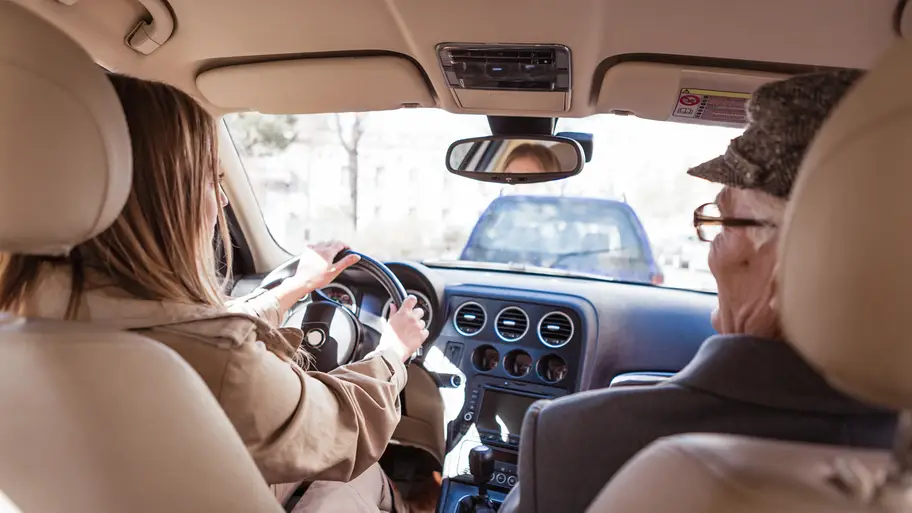Key takeaways
- If you don't have a license but need car insurance, most insurers will require you to list at least one licensed driver on the policy.
- If you own a car that is registered in your name but have no license, you still need to have car insurance to cover the vehicle in most states.
- Reasons you might buy car insurance with no license include having another licensed driver driving your car, having a student driver or having a suspended license.
How to buy car insurance without a license
There are several ways you may be able to obtain car insurance even without a license. However, every insurance company is different and has different eligibility criteria for distributing insurance. Depending on the insurance company, some may not offer you insurance if you do not have a driver’s license. On the other hand, others may require additional steps to add an unlicensed driver to a policy. Working with a licensed insurance agent may help answer any carrier-specific questions you have about buying car insurance without a license.
1. Ask about an SR-22 certificate
If your license is suspended, you may need to file an SR-22 form or the equivalent in your state. An SR-22 certificate is proof that you’ve satisfied the minimum insurance requirements in your state. These certificates may be required for drivers labeled “high-risk,” including those whose licenses have been suspended. Although not every auto insurer offers it, you may want to research which carriers issue SR-22s if you are required to get one by your state’s department of motor vehicles. Working with a carrier that offers SR-22 certificates may allow you to obtain insurance even if your license has been suspended.
2. Buy a policy with someone else as the primary driver
A primary driver on an insurance policy is the vehicle owner or the joint owner of a vehicle who drives it the most.
If you own a car but don’t drive it, you may be able to list someone else as the primary driver on your insurance policy. Some insurance companies might require that the driver is part of your household, but speaking with a licensed agent that represents your insurer may help you determine the company’s requirements. In this situation, you’ll likely need the driver’s authorization as well as their identifying information and driver’s license number.
3. Add a co-owner
It may be easier to maintain car insurance coverage without a license if you add a co-owner or household driver to your car insurance policy. This person will be the primary listed driver on the policy, and rates will depend on their driving and claims history.
If the vehicle co-owner is the insurance policyholder, you may be listed as an insurable interest or an excluded driver for registration purposes. Remember that if you’re an excluded driver, you have no coverage if you drive the vehicle. If you get your license after obtaining the policy, may be able to adjust the policy and coverage accordingly.
4. Store your vehicle with coverage in place
If you plan to garage or store a vehicle registered in your name for an extended period of time, you will still likely need to maintain an insurance policy for the car, especially if you want coverage for the vehicle in case of damage while in storage. If the vehicle is registered in your name and you do not maintain continuous coverage, you may experience rate hikes for a lapse in coverage.
Although you will still likely need to list another driver as the primary driver on the policy if you don’t have a license, you may be able to save on insurance while your car is stored. Some carriers, like USAA, offer a discount on stored vehicles. If your car is not being driven, you may also be able to reduce your coverage to just comprehensive insurance. This coverage type is designed to cover damage from theft, vandalism, fire and other incidents that could occur while the car is stored.
Do I need car insurance if I don’t have a license?
It may sound odd to suggest that someone who will not be driving would need auto insurance, but auto insurance is a legal requirement in most states. In addition to meeting legal requirements as a car owner, there are scenarios where having a policy without a license may be in your best interest:
Health reasons prevent you from driving
If you have a health condition that prevents you from driving, you may still want to consider maintaining auto insurance. If you put your car in storage for a while and your license expires while you recover, keeping a policy in place may protect your financial investment in your vehicle in case anything happens to your car while in storage.
You may also want to keep an auto insurance policy in place if you think you may drive again in the future to avoid a lapse in coverage, which could result in a higher rate when you seek coverage again.
You don’t drive your car, but others still do
Even if you are not the main driver for your car, you likely still need auto insurance to cover your vehicle. You may be able to do this by listing another person as the primary driver of the vehicle and maintaining yourself as an excluded driver on the policy.
You are a student driver or only hold a provisional license
Teen drivers with a learner’s permit typically need to have auto insurance, even though they are not technically licensed. Student drivers usually learn to drive on their parent’s insured vehicle. The insurance company may require the student driver to be listed on the policy, although a teen with only a permit will usually be included free of charge until they receive their license.
You do not drive, but your student driver does
Say you purchase a car for your teen’s 16th birthday before they get a driver’s license. Even if no one is driving the vehicle yet, the car will still need to be insured. In almost every state, you will not be able to register the car with the department of motor vehicles unless you can show proof of insurance first. And if your teenager is not old enough to be on their own policy, they would need to be listed as a driver on the policy of someone age 18 or older. Adding a teen to your policy can increase your rates significantly, so you may want to shop around and compare car insurance quotes to see which company offers you the lowest rate.
You own a vintage vehicle that you do not drive
If you purchase a vintage car that sits in your garage, you may still need to have insurance on it to be financially protected against damage or theft. Even if you have no intention of getting behind the wheel, you may want to purchase a policy that covers comprehensive claims only (in addition to standard liability). This may cover your vintage car in the event of damage caused by animals, weather events, theft, fire and vandalism.
Your license is suspended
Depending on your state, your license may be suspended if you are convicted of a DUI or other reckless driving incident. If that is the case, you might not be able to get your license reinstated until you have shown proof of financial responsibility with an SR-22 certificate. An SR-22 is not a type of insurance but is a certificate issued by your insurer that proves to the DMV that you have the minimum amount of liability insurance required by your state.





